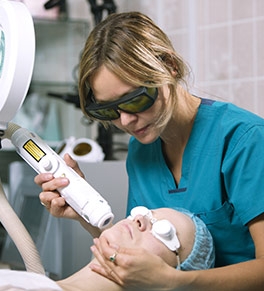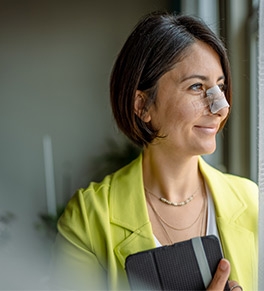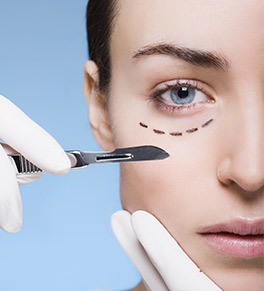
Your skin is your largest organ, and although it might seem simple, a lot is going on under the surface, so to speak. Your skin contains water, protein, fat, and minerals. One of those proteins 一 collagen 一 has been touted as the proverbial fountain of youth, but what exactly is it?
Here, Dr. Cecil Yeung at The Yeung Institute in Houston, Texas, discusses the role of collagen in your skin and how some nonsurgical procedures 一 like laser skin resurfacing 一 can stimulate collagen production.
Exploring the role of collagen in your skin
Although collagen is most often discussed in terms of collagen supplements, the reality is that your body makes collagen on its own. It’s what gives your skin its strength and elasticity.
Specifically, collagen is a protein, and there are many different types 一 more than two dozen — each performing a different function in your body. The three main types are:
- Type I provides structure to your skin, bones, tendons, connective tissue, and even your teeth
- Type II is found in cartilage and helps cushion your joints
- Type III provides structure to your organs and muscles
About 90% of your collagen is Type I collagen.
Collagen production slows down as you age
As you age, your body not only produces less collagen, but it also makes lower-quality collagen. As a result, you might start to notice the effect on your skin. It becomes less firm, less supple, and more wrinkly. Your skin isn’t the only part of your body affected by diminished collagen production. Your cartilage can also weaken with age.
Collagen production slows down by about 1% each year once you turn 20 一 and that rate speeds up even more after menopause. In addition to aging and menopause, UV exposure also contributes to reduced collagen production.
Stimulate collagen production
The word “collagen” is derived from the Greek word for glue, which isn’t surprising considering collagen helps hold your body together. But what happens if you notice the signs of decreasing collagen? There are many strategies you can take to bolster your collagen levels:
- Taking collagen supplements
- Consuming the nutrients that support collagen development, including those rich in vitamin C, glycine, copper, and proline
- Refraining from activities that damage collagen, such as smoking or excessive UV exposure
- Eating a healthy, well-balanced diet
- Staying hydrated
In addition to these lifestyle habits that support healthy skin function, a variety of cosmetic procedures also encourage your body to produce more collagen. This includes CO2 laser skin resurfacing.
How CO2 laser resurfacing boosts collagen
CO2 laser resurfacing turns back the hands of time and reduces the signs of sun exposure, diminishes the appearance of wrinkles, and helps restore elasticity in your skin 一 and it accomplishes these goals by encouraging collagen production.
During laser skin resurfacing, each light energy pulse works to vaporize the top layer of your skin. Not only does this improve your skin’s tone and texture, but it also triggers your body’s healing response in the form of more collagen.
If you’re not happy with age spots, wrinkles, and dull skin texture, consider the collagen-boosting effects of laser skin resurfacing. To learn more about laser treatments, contact The Yeung Institute today.









